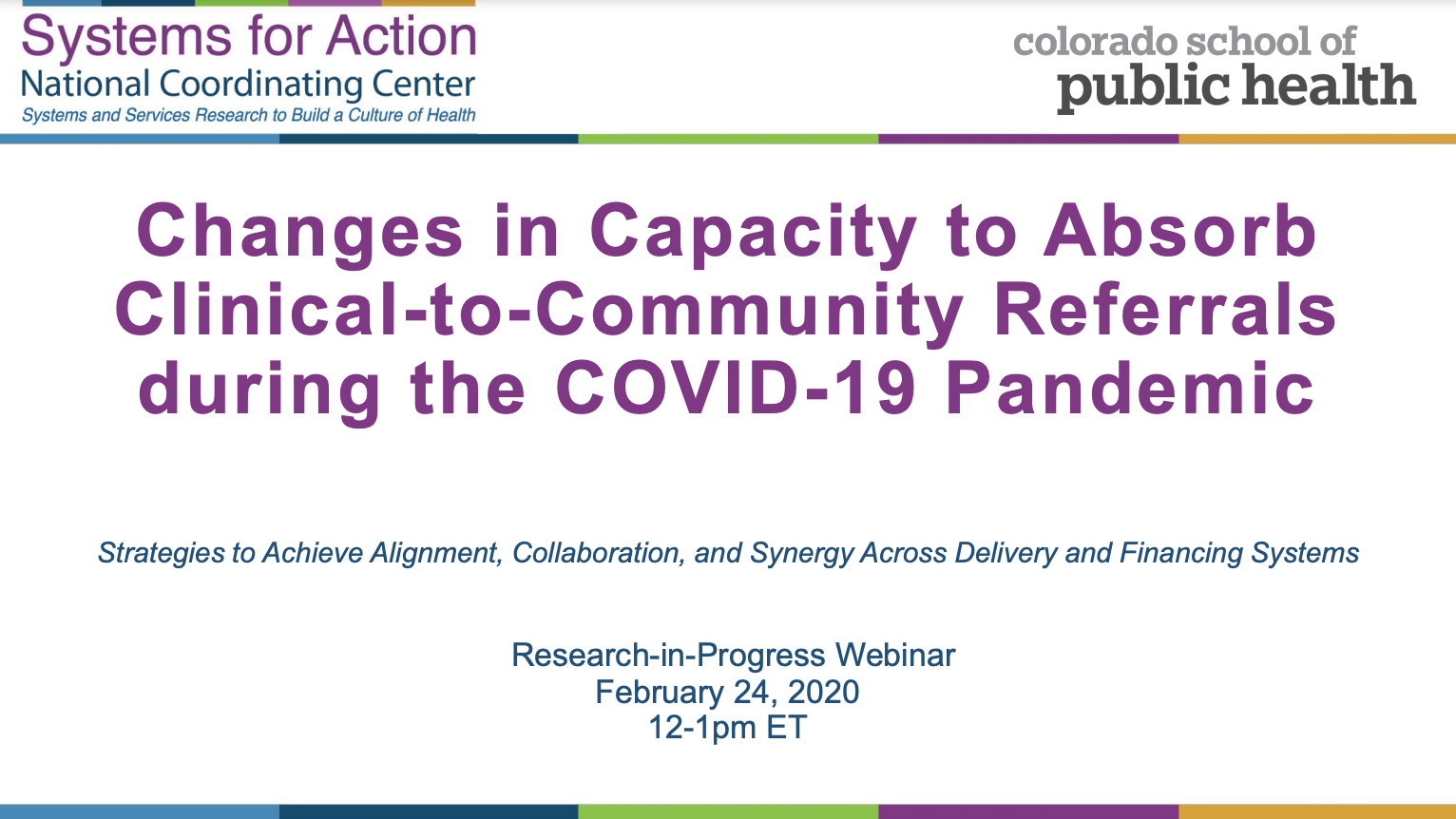
Changes in Capacity to Absorb Clinical-to-Community Referrals during the COVID-19 Pandemic
This webinar introduces a study assessing the capacity of community social services organizations and their partners to meet the needs of new clients identified through emerging social determinants of health (SDOH) screening and referral tools used by medical providers during the COVID-19 pandemic.
In a previous study, researchers developed a method for assessing the capacity of social service organizations to accommodate referrals from medical providers. In this follow-up study, researchers use social network analysis, secondary data, and qualitative interviews to explore how clinical-community referral networks and referral patterns have changed during the COVID-19 pandemic, and how these changes may affect service delivery and outcomes for community residents.
Findings will guide efforts to strengthen the capacity of communities to meet the health and social needs of their residents.

 Back to Resources
Back to Resources